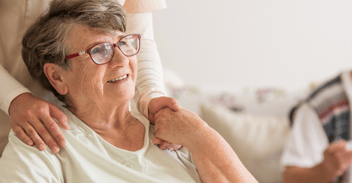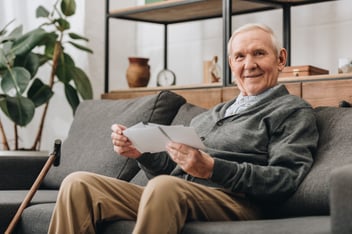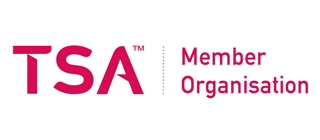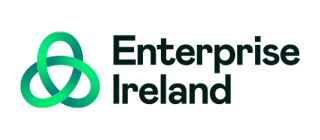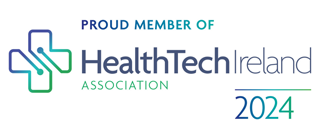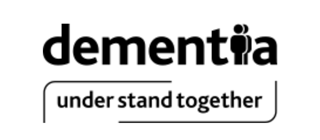
Mental Health Awareness Week takes place from the 13th – 19th May 2024 in the UK & Ireland. The aim of the week is to raise awareness of mental health issues and campaign for improved mental health services and equal job opportunities and housing for those living with mental health issues.
Why is the conversation around mental health so important?
The stigma surrounding mental health is still very real, unfortunately people may still experience discrimination due to a lack of education around the topic of mental illness. Almost nine out of ten people in the UK with mental health issues say that stigma and discrimination have a negative effect on their lives.
In recent research carried out by Maynooth University, National College of Ireland, and Trinity College Dublin they reported that 42% of adults in Ireland met the requirements for at least one mental health disorder. With just under half of the Irish population living with a mental health issue, it’s important that we continue to have conversations around mental health and advocate for equality for those living with mental health conditions.
Mental Health and Disabilities
When having conversations around mental health awareness, it's crucial to include a group often overlooked: individuals living with disabilities. For individuals with disabilities, experiences with mental health can be complex, often compounded by societal stigmas, accessibility barriers, and unique challenges. It’s reported that average anxiety ratings are higher for people with disabilities at 4 out of 10 vs 2 out of 10 for people without disabilities.
How can we support the wellbeing of people with disabilities?
Challenge misconceptions
One of the biggest things that we can do to support those with a disability is to challenge misconceptions. It's important to take action to challenge stereotypes, discrimination, and stigma associated with disability. Promote awareness and seek out educational resources to learn more for yourself and others around you. Knowing and understand mental health can help to create a more inclusive and accepting society.
Support social connections
Combat social isolation by promoting social connections and community engagement. Encourage participation in social activities, facilitate peer support networks, and provide opportunities for meaningful social interactions.
Be patient with loved ones who may not be as confident using technology, and look at technology solutions that can help keep loved ones connected. Specifically, look for solutions that have been adapted or created with the end user in mind.
HaloCare helps to tackle social isolation by providing technology that is user-friendly and encourages individuals to stay digitally connected. The HaloPad is a tablet-device that can make phone and video calls at the touch of a button. Its interface has been developed for individuals of all ages and abilities and can also be used to access the web.
What makes HaloCare so special is the combination of technology, people and expertise. The Care Hub team is available 24/7, ensuring clients are not only safe at home, but also providing a familiar voice they can speak with each day. Making opportunities for connection readily available helps to support those who may be at risk of becoming socially isolated.
Help make healthcare easily accessible
Ensure healthcare services are sensitive to the needs of individuals with disabilities. This includes providing physical and mental health services, preventive care, rehabilitation services, and alternative accommodations for appointments and procedures.
Remote healthcare can help bridge the gap for individuals with disabilities and improve access to quality healthcare with solutions like Vital Sign Monitoring.
Advances in technology, means that Vital Signs can now be recorded from the comfort of the individual's home. HaloCare works with the top providers in healthcare to supply a home care solution that records vital signs. HaloCare can capture vitals such as blood pressure, oxygen levels and blood sugar which is then shared with clinical professionals. The information collected allows health professionals to make data informed decisions around the individual's health, and can also help with early intervention and detection.
Support independent living
Encourage individuals to live independently if possible. Look at aids that can support independent living like grab rails, shower seats and voice activated software's like Alexa or Google Home to help with activities of daily living.
HaloCare strives to bridge the gap between technology and healthcare, providing a home care solution that makes independent living possible for longer. Smart Devices can help support with the activities of daily living i.e. providing bespoke reminders around nutrition & hydration and supporting with medication management, while also ensuring the individual is safe at home.
Safety solutions can be adopted around the home which includes emergency panic buttons and door management sensors which can detect if doors have been opened at an unusual time. HaloCare also offers wearable fall detection, which can come in the form of watches or pendants. These solutions come together to provide peace of mind that the individual is safe at home, while protecting and maintaining their privacy and dignity.
By challenging stigma and advocating for accessibility, and celebrating awareness campaigns like mental health awareness week, we can help create a world where everyone, regardless of ability, has the opportunity to thrive mentally, emotionally, and physically.
